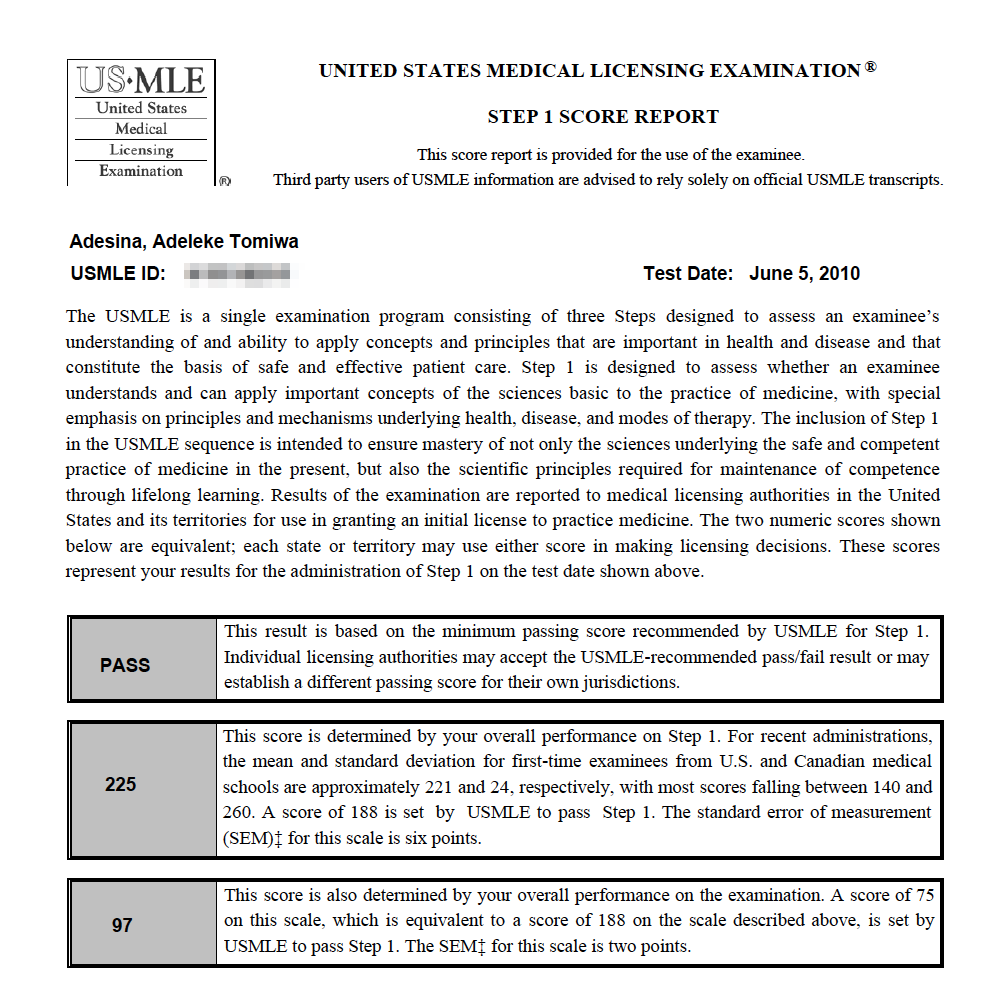

There are many other things you can do with your time in Med2 and summer: extracurriculars that will be relevant to your CaRMS applications, rest, vacation, and visiting family. Since none of the USMLE steps are required for Canadian licensure, if you know that you most likely never want to pursue training or practice in the US, it's ok to decide against writing Step 1. Reasons you might decide against writing USMLE Step 1: You are very convinced that you only want to stay in Canada

However, unless you are quite certain that the state in which you ultimately want to practice does not require (and will not require by the time you finish residency) the USMLE, you may want to consider writing at least Step 1. If it's unclear, you'll need to contact that state board directly.

To find out, you need to look up the state medical board website, and basically click around on it until you find the deeply buried subpage or PDF which indicates which examinations that state will accept for licensure. You are thinking of ultimately practicing in the USĪgain, this can be tricky since medical licensure in the US is state-dependent, and not all states require USMLE scores (CA, NY and VT are examples of states that will accept the Canadian licensing examinations). For this reason, many medical students choose to delay taking their USMLE exams until residency, when their fellowship plans are a bit clearer. You will have to confirm specific exam requirements with your target fellowship programs. This is a bit trickier because not all fellowship training programs require USMLE, but if you want to “moonlight” (work) while doing your fellowship, you will need to be licensed in the state you are in, which may require completion of the USMLEs. You are thinking of pursuing fellowship training in the US Many programs even have “minimum scores” below which they will not even consider an applicant (see average USMLE scores of matched applicants to various disciplines: Charting Outcomes in the Match: International Medical Graduates). With the transition in January 2022 to a Pass/Fail system for the USMLE Step 1, some programs may begin to rely more heavily on the USMLE Step 2 score instead. Reasons you might choose to write USMLE Step 1: You are thinking of pursuing residency training in the USįor most residency programs, particularly those that are highly competitive, USMLE Step 1 has historically been an extremely important part of the residency application process.

Consult the USMLE safety web page which presents examples of security violations and information about sanctions that may be imposed on examinees who commit security violations and a video that clearly explains what these breaches may consist of to safety. Examinees who behave in ways that compromise security standards could jeopardize their future medical careers.


 0 kommentar(er)
0 kommentar(er)
